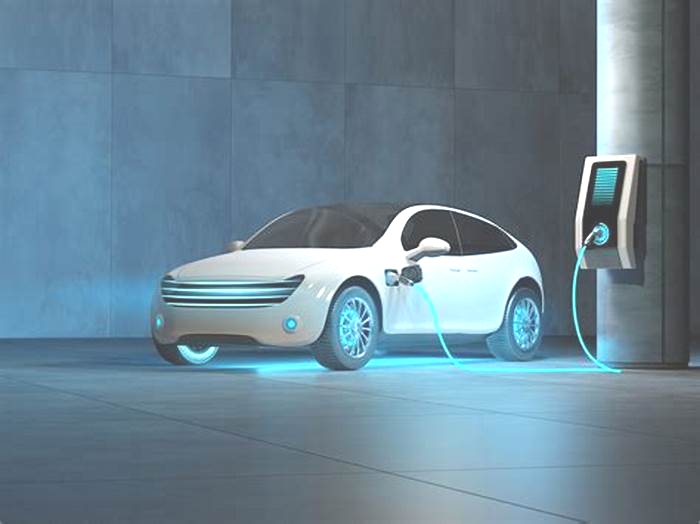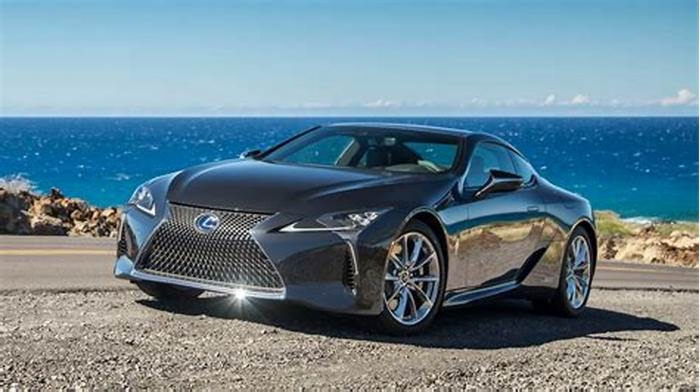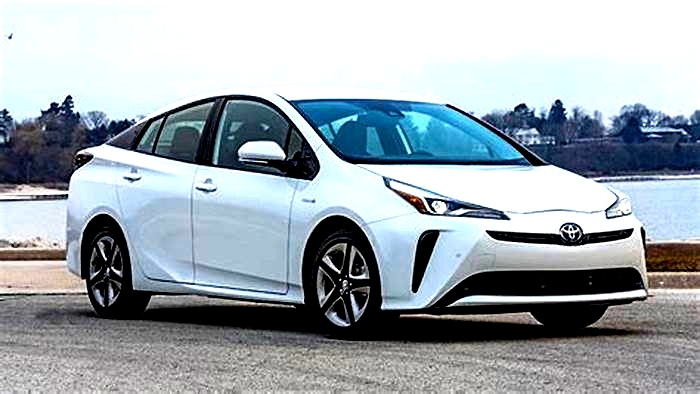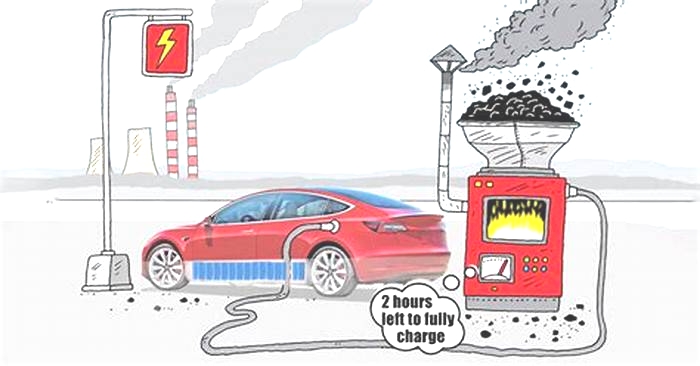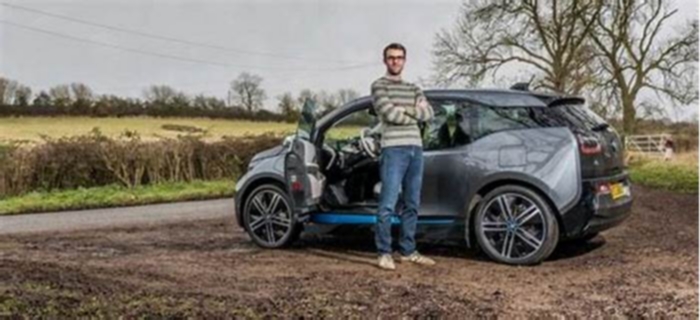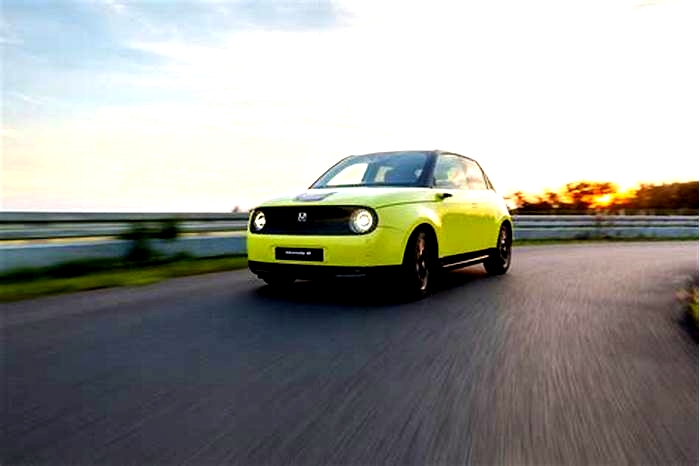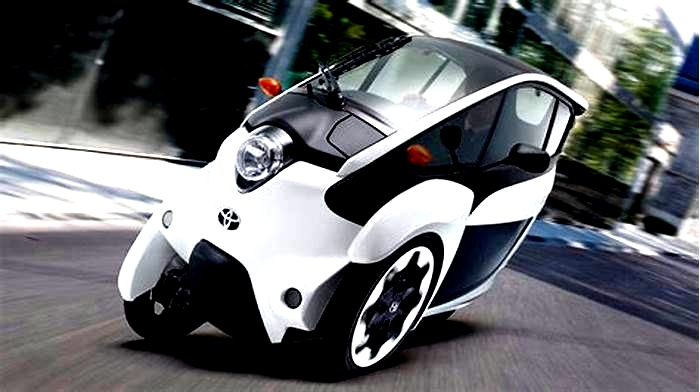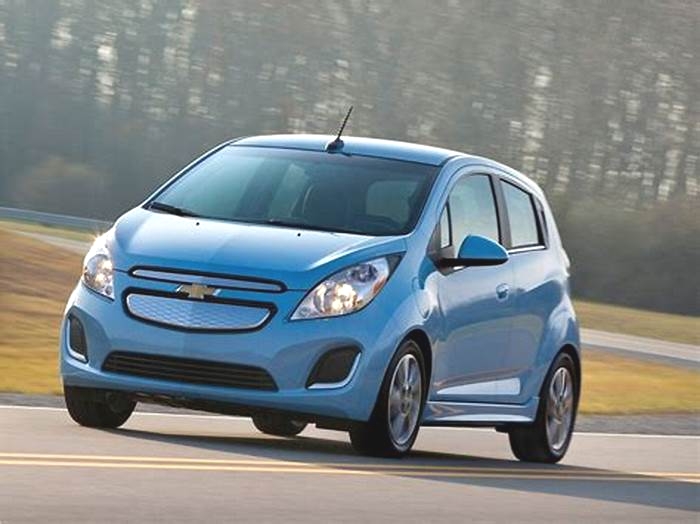Is hybrid good for city driving
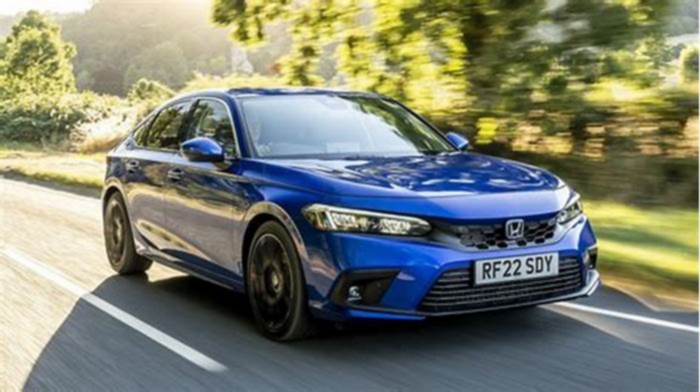
Are Hybrid Cars Good for City Driving?
Follow Cars of Electric on Google News
There has been a lot of debate lately about whether hybrid cars are suitable for city driving. Some people say that they are great because they help you save money on gas. Others say that they are not as good for city driving as regular cars. So, which is it? Are hybrid vehicles suitable for city driving or not? In this blog post, we will look at some of the pros and cons of using hybrid vehicles in cities and try to answer this question.
Are Hybrid Cars Good for City Driving?
There are a lot of factors to consider when purchasing a car. And one of the main ones is what type of driving youll be doing. If youre mostly driving in the city, then a hybrid car might be good. Here are some things to keep in mind about hybrid cars and city driving:
- Hybrid cars are very fuel-efficient. This is because they use a combination of gas and electric power. It means that they dont have to use as much gas as a classic car. This can save you money on gas, and its also better for the environment.
- Hybrid cars are usually smaller than traditional cars. This makes them easier to maneuver in tight spaces and makes parking a lot easier.
- Hybrid cars are very quiet. This can be a big plus if youre doing a lot of driving in the city, where noise pollution is a big issue.
- Hybrid cars usually have all the latest technology. So if youre someone who likes to have the latest and greatest gadgets, then a hybrid car might be a good option.
- Hybrid cars can be more expensive than traditional cars. This is something to keep in mind when budgeting for your new vehicle.
If youre considering a hybrid car for city driving, these are some things to keep in mind. Hybrid vehicles have a lot of great features that can make city driving more accessible and more enjoyable. But, they can also be more expensive than traditional cars. So, keep all these factors in mind when deciding to ensure that you choose the right car for you.
Advantages of Using Hybrid Cars in Cities
As the world becomes more and more urbanized, the need for efficient and green transportation options becomes increasingly essential. Hybrid cars offer a unique solution to the challenges of city driving. In addition, they provide many benefits over traditional gasoline-powered vehicles.
Hybrid cars are much more fuel-efficient than their gasoline-powered counterparts. It means that they produce far fewer emissions. This is particularly important in cities, where air pollution is significant. Hybrid cars also tend to be quieter than gasoline-powered cars. It can make a big difference in noise pollution levels in urban areas.
Another advantage of hybrid cars is that they are often eligible for government incentives and tax breaks. Often, these incentives can make hybrid vehicles even more affordable than traditional gasoline-powered vehicles.
Finally, hybrid cars tend to have a more negligible environmental impact than gasoline-powered cars. This is because hybrid cars use less petroleum and produce fewer emissions, making them better for the environment.
Hybrid cars offer many advantages over traditional gasoline-powered vehicles. First, it makes them an excellent option for city driving.
Disadvantages of Using Hybrid Cars in Cities
Hybrid cars offer many advantages over traditional gasoline-powered vehicles. But there are also some potential drawbacks to consider before making the switch. One of the most significant disadvantages of using hybrid cars in cities is the cost. Hybrid vehicles can be more expensive than their gasoline-powered counterparts. It makes them out of reach for many consumers.
Additionally, hybrids tend to have shorter ranges than gasoline-powered cars. So if you drive long distances, a hybrid may not be the best option for you. Another potential downside to using hybrid cars is that they can emit higher pollutants than gasoline-powered cars. It negates some of the environmental benefits. Finally, hybrids rely on both gasoline and electricity to operate. So if theres a power outage, you may be stranded.
Hybrid cars offer many advantages that make them an excellent option for city driving despite these potential drawbacks. Theyre more fuel-efficient than gasoline-powered cars. So youll save money on gas over time. Additionally, hybrids emit fewer pollutants than gasoline-powered cars. So theyre better for the environment. If youre looking for a more fuel-efficient and eco-friendly option for city driving, a hybrid vehicle may be the right choice.
Are Hybrid Cars Suitable for Short Journeys?
Yes, hybrid cars are suitable for short journeys. The main reason people choose hybrids is to save money on fuel, which is especially true for those who do a lot of city driving. You can get excellent gas mileage with a hybrid since the electric motor kicks in whenever the car is idling or traveling at low speeds. This means youll use less fuel, and your trips will cost less.
Are Hybrid Cars Slower Than Traditional Cars?
There is a common misconception that hybrid cars are slower than traditional cars. But, this is not always the case. Many hybrid vehicles can outperform their conventional counterparts regarding acceleration and speed.
Some people may think that hybrid cars are slower because they use electric motors to assist the gasoline engine. However, the electric motors in hybrids are designed to provide a power boost. This can improve acceleration and top speed.
Another reason why some people may believe that hybrid cars are slower is that they are more fuel-efficient. While it is true that hybrids use less gasoline than traditional cars. But this does not mean that they are necessarily slower. On the contrary, many hybrids are just as fast or even faster than conventional cars.
So, if youre wondering whether hybrid cars are slower than traditional cars, the answer is that it depends. Some hybrids can be faster than conventional cars, while others may be slower. Yet, on average, hybrid cars tend to be as fast as traditional cars.
Conclusion
This article discusses whether hybrid cars are suitable for city driving. Weve also touched on some of the potential drawbacks of using hybrids in cities. Hybrid vehicles offer many advantages over traditional gasoline-powered vehicles. They make them an excellent option for city driving. But, there are also some potential disadvantages to consider before making the switch. If youre looking for a more fuel-efficient and eco-friendly option for city driving, a hybrid car may be the right choice.
Follow Cars of Electric on Google News
Why Do Hybrid Cars Get Better Gas Mileage for City Driving?
Traditional gas-powered vehicles usually get better fuel economy for highway driving. The stop-and-start traffic for city driving is generally less efficient than for smooth highway driving. However, for hybrid cars, its often the opposite. Hybrids typically get better gas mileage for city driving. Read more to find out why.
Hybrid vehicles have higher fuel economy for city driving because of electric motor and battery pack
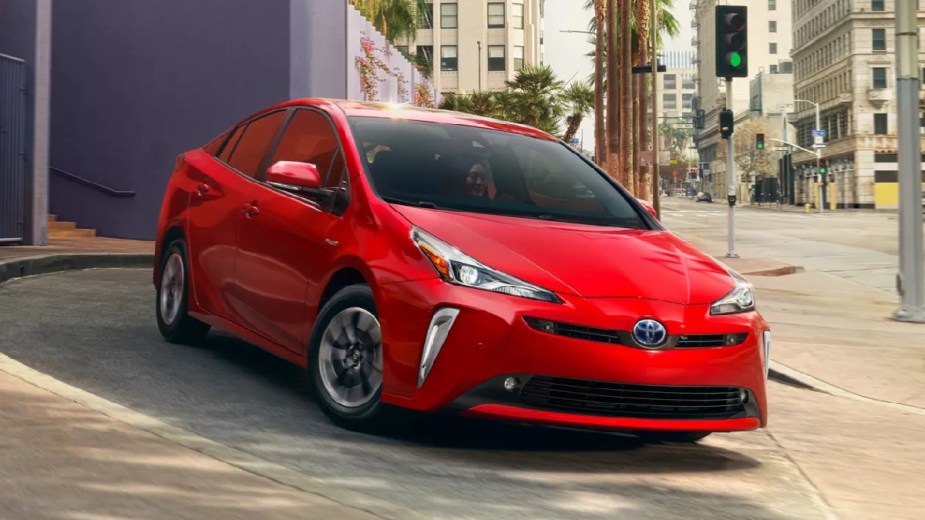
While not always the case, the highway fuel economy for hybrid cars is often higher than for driving in the city. For example, the Toyota Prius, the best-selling hybrid of all time, gets an estimated gas mileage of up to 58 city/53 highway mpg for the 2022 model year. Another popular hybrid is the 2022 Toyota RAV4 Hybrid crossover SUV. It has an estimated fuel economy of up to 41 city/38 highway mpg. Conversely, the fully gas-powered variant of the RAV4 gets a better highway gas mileage (up to 27 city/35 highway mpg).
First, it helps to understand how hybrid vehicles are different from traditional gas-powered cars. While a traditional gas-powered car has an internal combustion engine, a hybrid features an engine, one or more electric motors, and a battery pack. The addition of the electric motor and the battery back is the primary reason why hybrids get such good city gas mileage.
During city driving and light acceleration, hybrids primarily use the electric motor. This takes the strain off the gasoline engine. As a result, it improves the fuel economy. However, for highway driving, hybrids mostly use the engine and, in turn, have a higher rate of fuel consumption.
Regenerative braking also contributes to better city gas mileage for hybrids
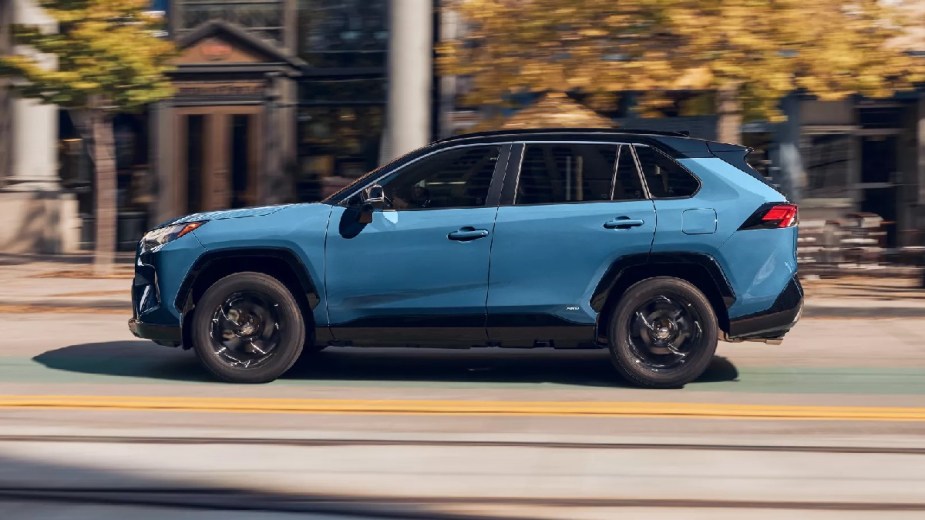
Another factor that contributes to better city gas mileage for hybrid cars is brake regeneration technology. The friction created by applying the brakes creates a great deal of kinetic energy. For traditional gas-powered vehicles, this energy is wasted as it turns to heat instead of motion, as detailed by KBB.
However, regenerative brakes in hybrid vehicles (as well as EVs) capture the kinetic energy. It then transfers the energy to the battery. Since the brakes are more often applied during city driving, the regenerative braking system gives hybrids a boost for city mpg. The regenerative brakes typically help power a hybrid cars auxiliary functions, such as the climate control and sound systems.
Also, some hybrids have an EV mode. For the EV mode, a hybrid vehicle can drive on electric-only power for short distances, which improves city gas mileage. The EV mode for hybrids is especially beneficial when stuck in heavy traffic and just inching along at a slow pace. Some hybrid cars also have an efficiency-enhancing ECO mode, which reduces the engine power output and responsiveness of the gas pedal.
How can I improve fuel economy for a hybrid?
Along with selecting the EV or ECO mode, there are some measures that you can take to improve fuel economy in a hybrid car. This includes accelerating more slowly, not driving at an excessive speed, and not doing any sudden braking. Also, make sure that the tires are properly inflated. Additinally, using the most direct route, replacing a clogged air filter, reducing weight in the cargo area, and closing the windows at highway speeds helps improve efficiency as well.
However, you dont need to drastically change your driving habits.The hybrid system in a hybrid vehicle is designed to maximize gas mileage. This is the case for both city and highway driving. As long as you drive your hybrid at a reasonable speed and not too aggressively, youll likely get great fuel economy and save money on gas.
Recent Articles
Dear Tom and Ray:

I'm considering buying a hybrid car, but someone recently told me that because I do a lot of highway driving, I will not get nearly the mileage promised in the ads. The reason I was given is that on the highway, the gasoline portion of the engine is used rather than the electric portion. Is this true? -- Gayle
RAY: Well, Gayle, no one ever gets the mileage promised in the ads. But it's true that the benefits of hybrids are tilted toward city driving.
TOM: Here's why: Hybrids combine a gasoline engine with a battery-powered electric motor. In Toyota's hybrid system (which is the most popular), the battery power is called on first. So if you're just driving gently in city traffic, you might use ONLY the battery a lot of the time. And if you're stopped at a light, you're using nothing!
RAY: That's when a hybrid will save you a lot of gasoline.
TOM: At higher speeds -- above 15 mph or 20 mph -- or on harder acceleration, the gasoline engine kicks in. And, while the battery is still assisting the gasoline engine, you rely much more on the gasoline engine. So, at highway speeds, you still get good mileage, but the boost isn't quite as great as it is around town.
RAY: Incidentally, the reason nobody gets the Environmental Protection Agency-rated mileage in their car is that the tests are totally unrealistic. The tests are done with all of the accessories off, including the heat and air conditioning. In reality, most people have at least some accessories on all the time. Every accessory requires some power and lowers your mileage.
TOM: What makes the difference even greater on a hybrid is that turning on a major accessory, like the heat or AC, automatically turns on the gasoline engine. So, even at low speed around town or when you're stopped at a light, if your AC is on, your engine is running and you're using gasoline.
RAY: The Prius EPA test claims ratings of 60 mpg in the city and 51 on the highway. We have yet to meet anybody who gets even close to that. Most Prius owners we talk to get somewhere between 40-50 mpg -- which is still fantastic! You might be very happy even at the lower end of that scale, Gayle. But the mileage is not what the EPA leads you to believe it will be.
TOM: So, it's time for the EPA tests to join the real world. Turn on the AC, let a few pounds of air out of a couple of tires, and throw a mother-in-law or two in the back, and then we'll see some real-world mileage estimates.

